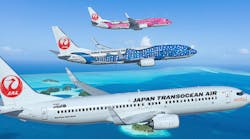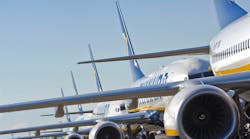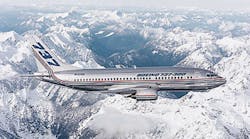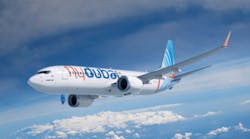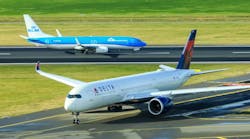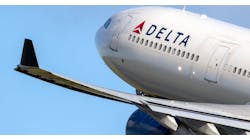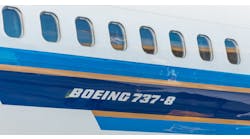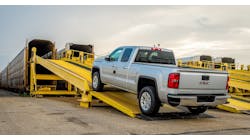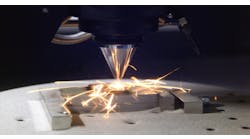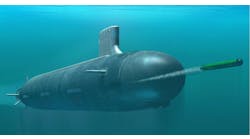Boeing Commercial Airplanes finalized an estimated $1.1-billion contract from Japan Transocean Air for 12 new 737 jets, selected as the foundation for that airline’s fleet renewal program, beginning in 2016. JTA operates domestic service linking major Japanese cities to Okinawa and other Okinawa islands, as part of the Japan Airlines Ltd. group, which is its majority owner.
Currently, JTA operates a fleet of 737-400 airplanes.
JTA has selected the Next-Generation 737-800 aircraft, though the agreement allows the airline to switch its order to the 737 MAX family of airplanes.
Various airlines’ fleet replacement programs are the primary reason for the high numbers of new jet orders for Boeing and rival Airbus, though the emergence of newer, more fuel-efficient aircraft designs is a parallel factor. The emergence of new commercial air service in emerging markets is also a factor.
"This order is a key part of our strategy to bring the highest levels of comfort, amenity and convenience to the people of Okinawa, by continuing to operate the most reliable and fuel-efficient aircraft available today and in the future," stated Manabu Sato, president of Japan Transocean Air and executive officer at Japan Airlines.
Boeing’s 737 Next Generation is the third generation the 737 narrow-body aircraft, the best selling commercial aircraft in history and widely used for short- to medium-range routes. The 737-NG-800 is a “stretched” version of the standard design, seating 162-189 passengers, according to different seating-class arrangements.
Boeing explained that the JTA jets will be fitted with Boeing's Performance Improvement Package, which is estimated to add 2% fuel efficiency to what the OEM calls “the most fuel efficient single-aisle airplane in the market.”
Also, the new jets will have the Boeing Sky Interior design, with sidewalls and windows, and larger pivoting, overhead stowage bins, plus LED lighting, that enhance the passengers’ sense of spaciousness.
The 737 MAX will be the fourth generation of the series, and due to make a commercial debut in 2017. It will be based on the 737 Next Generation standard, with larger and more efficient turbofan jet engines and some revisions to the airframe as well. Boeing recently indicated it has firm orders for nearly 2,000 737 MAX jets.
"We are honored that JTA has chosen to maintain an all-Boeing fleet of Next-Generation 737s," noted John Wojick, senior vice president of Global Sales and Marketing, Boeing Commercial Airplanes. "The Next-Generation 737 will provide JTA with market-leading efficiency, reliability and passenger comfort, allowing JTA to continue to grow and prosper, while also allowing JTA and Boeing to build on a successful partnership for many years to come."
